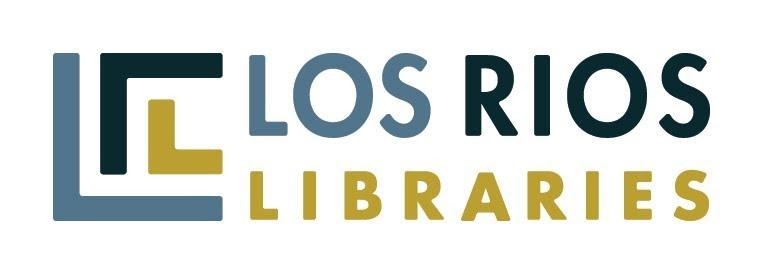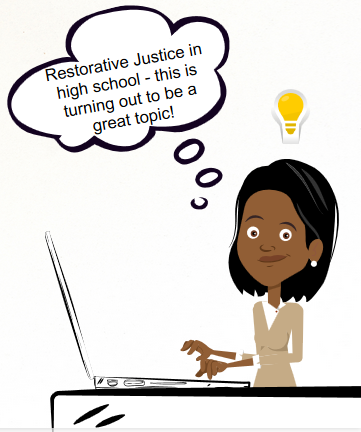If You Want to Go Far, Go Together: The Los Rios Libraries Information Literacy Tutorials

By Karen Tercho, Sacramento City College
In spring of 2017, the Los Rios Libraries Information Literacy Tutorials were launched at the four colleges in the Los Rios Community College District. The Canvas-based, self-paced tutorials were designed for community college students and incorporate the ACRL Framework for Information Literacy for Higher Education. A workgroup of Los Rios Librarians representing each of the four colleges dedicated much time and effort in designing and developing the tutorials as an alternative to generic, corporate, and expensive options. The tutorials are composed of seven Canvas modules, including a quiz for each module:
- What is Research
- Getting Started with Research
- OneSearch Basics
- Evaluating & Selecting Sources
- Avoiding Plagiarism & Citing Sources
- MLA Style for Community College Researchers
- APA Style for Community College Researchers
Instructional Design
In designing the content, the workgroup relied on Universal Design for Learning (UDL) guidelines as well as best practices for writing critical thinking-focused, multiple choice questions in higher education. For digital collaboration, Google Apps (Drive, Docs, Sheets) was and remains heavily used. Maximum effort was made to incorporate engaging images and equity-minded content into the Canvas pages. For its many strengths, the Canvas learning management system is quite flat in terms of interactivity. To help boost interactivity, a LibWizard (Springshare) activity was designed and incorporated for each module. The finished product is consistent with the California Community Colleges CVC-OEI Online Course Design Standards.
One of the thornier problems to solve was what tools and processes would work best for automatically issuing certificates to students who passed the quizzes. After exploring many imperfect options and relying heavily on our librarians’ technical expertise and persistence, it was decided that that the least-bad option was a combination of Canvas Mastery Paths, which in 2017 was still in beta form, and Google Form Publisher (for which we bought a subscription). After students complete a module with a grade of 85% or better, a certificate of completion is unlocked along with a form to input an email address. Students can email the certificate to themselves in PDF format, and then download and save the file from their email.
Rollout and Usage
In marketing the tutorials to faculty, we recommend keeping it simple. Rather than requiring faculty to import the Canvas course or individual modules, librarians usually advise faculty to assign one or more of the modules and create one or more assignments where students are asked to upload the certificate(s) of completion to their course. Students self-enroll in the standalone course which then appears on the student’s Canvas Dashboard. Each college’s library website points to the college version of the tutorials, along with a link that students use to self-enroll. Sacramento City College’s library website shows one example of this.

Started with Research” module
The tutorials are heavily used by classroom faculty across the district, and usage has increased in the aftermath of the COVID-19-induced pivot to online instruction. Improvements to the tutorials are continuously handled by a workgroup composed of one librarian per college; from that group, the workgroup lead rotates each year. The workgroup created the tutorials within a Canvas course shell named the Sandbox, and from there, each college has its own version of the course, imported from the Sandbox and managed by the same librarian who serves on the workgroup. The workgroup makes needed edits to the tutorials within the Sandbox, then we import the updated content into our college versions.
Keeping it fresh
During the last academic year, elements of the tutorials were revised to account for new editions of MLA and APA guidelines, and of course, Primo VE Discovery. Bringing new librarians into the workgroup is beneficial, because new energy and fresh eyes lead to improvement. We occasionally receive feedback and suggestions from classroom faculty, almost always allies of the library and its librarians, which we incorporate into regular improvements.
Plans for the future include the creation of a new module on information evaluation that will include content on media literacy, new interactive elements such as video quizzes, and new “Listen to this Page” recordings, which need to be re-recorded every time the tutorials undergo revisions. An improved certificate process that involves fewer steps for students is on our wish list, and we await and assess new technologies that will help make this wish a reality.
Creating the tutorials from scratch was a heavy lift that required a lot of cooperation, mutual support and encouragement, and energetic dedication to the cause. Without these intangible factors, it wouldn’t have happened. This project has required intensive collaboration across our district with regard to information literacy instruction, the likes of which we had not seen before in our district. Now we can all agree that it was worth it. In a spirit of fun in this fairly serious academic context during seriously troubling times, the following proverb with unclear origins is relevant (for which happily, a citation is not possible): “If you want to go fast, go alone; but if you want to go far, go together."
With that, credit for the creation and maintenance of the tutorials goes to Emily Bond and Andi Adkins Pogue of Cosumnes River College; Marianne Harris, Sarah Lehmann, and Kate Williamson of American River College; Amy Brinkley, Rebecca Mendell, and Megan Ozeran of Folsom Lake College; and Jeff Karlsen and Karen Tercho of Sacramento City College.
The Los Rios Libraries Information Literacy Tutorials are available in Canvas Commons under a Creative Commons Attribution Non-Commercial license. We welcome all librarians, especially our esteemed California Community College librarian colleagues, to adapt these tutorials to their own institutions as they deem useful.